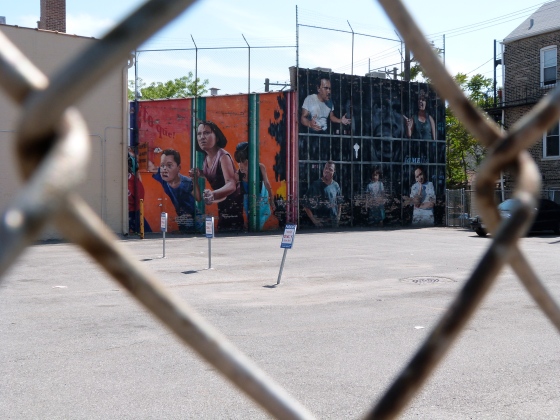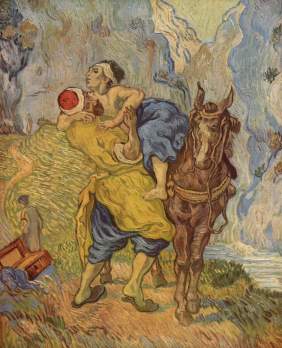
An extremely thought-provoking article written by Matt Rindge of Red Letter Christians, on America’s “annual ritual of misremembering Martin Luther King, Jr.” The article continues below.
. . .
Although Rev. Dr. King often indicted what he called the “triple evils of racism, economic exploitation and militarism,” America chiefly associates King with only one of these ills; our predominant picture of King is as an opponent of racial segregation.
But this image is a distortion. For in the last few years of his life, King increasingly aimed his prophetic critique at the twin “evils” of poverty and America’s militarism.
Efforts to help poor people led King to be in Memphis on the day of his assassination. He was there to join a strike of 1,300 sanitation workers seeking better working conditions, higher wages, and the right to join a union.
King raised troubling questions about an economic system that perpetuates poverty. In an August 1967 speech (“Where Do We Go from Here”) — eight months before he was killed — he declared:
“Why are there 40 million poor people in America? And when you begin to ask that question, you are raising a question about the economic system, about a broader distribution of wealth. When you ask that question, you begin to question the capitalistic economy. And I’m simply saying that more and more, we’ve got to begin to ask questions about the whole society. We are called upon to help the discouraged beggars in life’s marketplace. But one day we must come to see that an edifice which produces beggars needs restructuring.”
The Memphis sanitation strike was a part of the “Poor People’s Campaign,” which King began to organize in the last months of his life. This campaign would shift the primary focus of the Civil Rights Movement to the economic concerns of “poor people of all colors.” The campaign would seek, among other things, to secure poor people with jobs that paid a fair wage, unemployment insurance, and education. The campaign’s goals died along with King.
The week before he was killed King gave a speech (“Remaining Awake through a Great Revolution”) in which he offered an alternative economic proposal:
“. . . we spend in America millions of dollars a day to store surplus food, and I said to myself, ‘I know where we can store that food free of charge — in the wrinkled stomachs of millions of God’s children all over the world who go to bed hungry at night.’ And maybe we spend far too much of our national budget establishing military bases around the world rather than bases of genuine concern and understanding.”
In his final speech, King returned to poverty. Although most clips of his “mountaintop” speech feature the foreshadowing of his death (“I may not get there with you …”), King’s primary aim was to motivate people to support the striking sanitation workers in Memphis. Quoting Luke’s gospel, King maintained:
“Somehow the preacher must say with Jesus, ‘The Spirit of the Lord is upon me, because he hath anointed me,’ and he’s anointed me to deal with the problems of the poor.”
“It’s all right to talk about ‘streets flowing with milk and honey,’ but God has commanded us to be concerned about the slums down here, and his children who can’t eat three square meals a day.”
Restructuring society would require concrete economic changes, and King made these clear. He instructed the audience to stop purchasing Coca-Cola and Wonder Bread. He called for a “bank-in” movement, advising financial withdrawals from downtown Memphis banks and insurance companies.
King’s final statement on poverty appeared 12 days after his assassination in a Look magazine article, “Showdown for Nonviolence.” The same non-violent demonstrations used to fight segregation, King argued, should now be organized to address “the economic problem — the right to live, to have a job and income …” King called for an “Economic Bill of Rights for the Disadvantaged” that would “guarantee a job to all people who want to work and are able to work” and an “income for all who are not able to work.”
Economic justice, it seems, surpassed racial equality as King’s chief concern.
“The economic question is the most crucial that black people, and poor people generally, are confronting.”
In the last year of his life, King also devoted increasing attention to critiquing America’s use of violence in Vietnam. Speaking at New York’s Riverside Church — one year to the day before he was killed — King described the incongruity between his preaching and America’s practices:
“As I have walked among the desperate, rejected and angry young men I have told them that Molotov cocktails and rifles would not solve their problems. I have tried to offer them my deepest compassion while maintaining my conviction that social change comes most meaningfully through nonviolent action. But they asked — and rightly so — what about Vietnam? They asked if our own nation wasn’t using massive doses of violence to solve its problems, to bring about the changes it wanted. Their questions hit home, and I knew that I could never again raise my voice against the violence of the oppressed in the ghettos without having first spoken clearly to the greatest purveyor of violence in the world today — my own government.”
King suggested that a commitment to the world’s most vulnerable members should prevail over patriotism:
“This I believe to be the privilege and the burden of all of us who deem ourselves bound by allegiances and loyalties which are broader and deeper than nationalism and which go beyond our nation’s self-defined goals and positions. We are called to speak for the weak, for the voiceless, for victims of our nation and for those it calls enemy . . .”
King viewed America’s devotion to war in religious terms:
“A nation that continues year after year to spend more money on military defense than on programs of social uplift is approaching spiritual death.”
Twenty-six days later, King again spoke out on Vietnam in a sermon at Ebenezer Baptist Church. He described America’s hypocritical responses to his messages of non-violence.
“There’s something strangely inconsistent about a nation and a press that will praise you when you say, ‘Be non-violent toward Jim Clark,’ but will curse and damn you when you say, ‘Be non-violent toward little brown Vietnamese children.’ There’s something wrong with that press!”
Remembering King primarily for his struggle against segregation is to misremember him. (America does with King what the Church has done to Jesus: remade him in our own image.) Domesticating and sterilizing King is the only way to integrate him into our national consciousness. The unlikely alternative would be to question two of America’s sacred engines: its economy and military. Ironically, King’s critiques of poverty and militarism are more relevant today than his work on behalf of racial integration.
To honor King, we need to stop celebrating him. Perhaps the very nature of celebration makes distortion inevitable. A National Day of Lamenting King would be more fitting, and helpful in calling to mind the ways we betray two fundamental aspects of his legacy.
**This article originally appeared on Spokane Faith & Values
—-
Matthew S. Rindge is Assistant Professor of Religious Studies at Gonzaga University. He is currently writing “Cinematic Parables: Subverting the Religion of the American Dream.”

 Not like the brazen giant of Greek fame,
Not like the brazen giant of Greek fame,




 Yes, there is such a parable in the original. The first several times I didn’t realize what it was about; Jesus insists on framing the question in a way that invalidates most of our categories of discussing the issue. I’ve taken the liberty of writing my own paraphrase, with a few hopefully not-entirely-unwarranted interpolations and transpositions, to make it as immediate to you as it was to me when I saw it. The categories of people in Jesus’ story have become people who might correspond in our society. If you’re interested in debating the current political discussion on health care, I’m sure there are lots of other places on the Internet for you to do so– this is about something much bigger. EMP
Yes, there is such a parable in the original. The first several times I didn’t realize what it was about; Jesus insists on framing the question in a way that invalidates most of our categories of discussing the issue. I’ve taken the liberty of writing my own paraphrase, with a few hopefully not-entirely-unwarranted interpolations and transpositions, to make it as immediate to you as it was to me when I saw it. The categories of people in Jesus’ story have become people who might correspond in our society. If you’re interested in debating the current political discussion on health care, I’m sure there are lots of other places on the Internet for you to do so– this is about something much bigger. EMP
